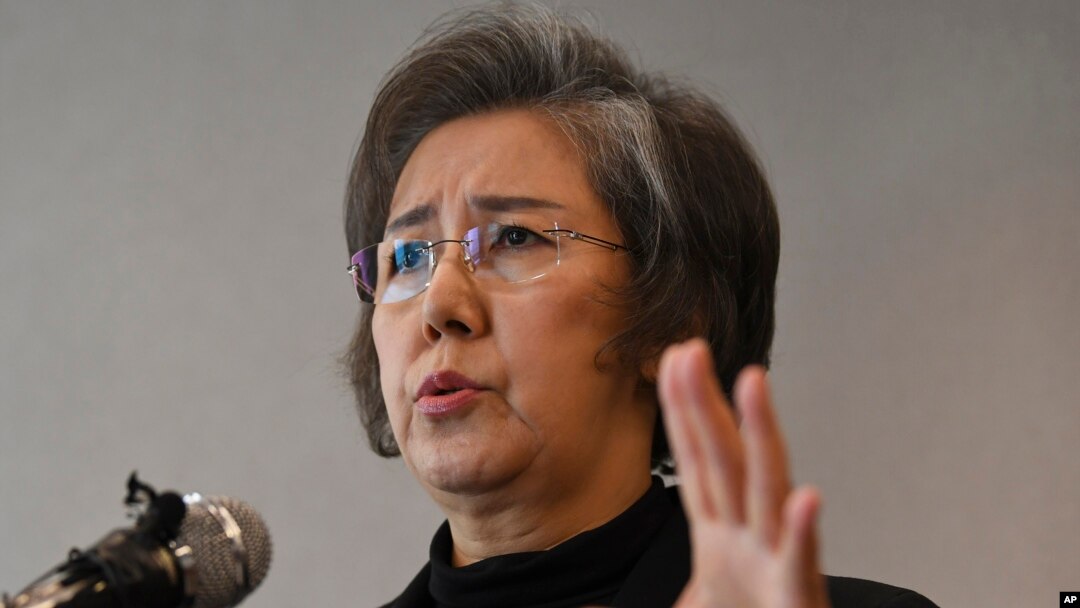Myanmar's government on Tuesday rejected two reports presented to the U.N. Human Rights Council that concluded it had committed extreme human rights violations, probably amounting to crimes under international law, in its repression of several minority groups.
Government spokesman Zaw Htay said the reports presented Monday by the Independent Fact-Finding Mission on Myanmar and U.N. Special Rapporteur on Human Rights in Myanmar Yanghee Lee lacked credibility.
The report of the Fact-Finding Mission, chaired by former Indonesian Attorney General Marzuki Darusman, was based on hundreds of accounts by victims and witnesses of reported human rights violations, as well as satellite imagery, photographs and video footage.
The mission's members were barred by Myanmar's government from entering the country, so its researchers interviewed refugees and others in Bangladesh, Malaysia and Thailand.
Zaw Htay said Buddhist-majority Myanmar had barred the Fact-Finding Mission because it rejected its legitimacy. He questioned the reliability of its research and cast doubts on the credibility of the refugees' stories.
"We are not denying rights violations but we are asking for strong, fact-based, and trustworthy evidence on the allegations they are making," Zaw Htay told The Associated Press by telephone.

FILE - Myanmar government spokesman Zaw Htay talks to journalists during a news briefing at the Presidential Palace in Naypyitaw, Myanmar, Sept 13, 2017.
He also said Myanmar would no longer cooperate with Lee because she "has made biased, one-sided and unfair accusations against Myanmar."
'Hallmarks of genocide'
Lee told the Human Rights Council that violent sweeps by the Myanmar army in Rakhine state that prompted about 700,000 Rohingya Muslims to flee to neighboring Bangladesh "bear the hallmarks of genocide."
She said accountability for the abuses in Rakhine should be "the focus of the international community's efforts to bring long-lasting peace, stability and democratization to Myanmar."
"This must be aimed at the individuals who gave the orders and carried out violations against individuals and entire ethnic and religious groups," she said. "The government leadership who did nothing to intervene, stop or condemn these acts must also be held accountable."
The situations in Kachin and Shan states, which involve actual combat between government soldiers and ethnic rebel groups seeking greater autonomy, have received much less international attention than the plight of the Rohingya.
The Fact-Finding Mission said in an interim report presented in Geneva that "patterns of human rights abuse across the country are linked," with events in Rakhine, Kachin and Shan states all "products of a long-standing, systemic pattern of human rights violation and abuse in Myanmar."
"The long-standing conflicts in Kachin and Shan states have recently intensified, leading to more reports of serious violations of international human rights and humanitarian law committed in these areas by the security forces," it said.
Both Darusman and Lee said Facebook had played a key role in the spread of conflict and hate speech in Myanmar.
"We know that the ultranationalist Buddhists have their own [Facebook pages] and really [are] inciting a lot of violence and a lot of hatred against the Rohingya or other ethnic minorities," Lee said. "And I'm afraid that Facebook has now turned into a beast, [instead of] what it was originally intended to be used (for) — maybe in other parts of the world, too."
Facebook said in a statement there is "is no place for hate speech or content that promotes violence" on its platform and added that it has "worked with experts in Myanmar for several years to develop safety resources and counterspeech campaigns."


